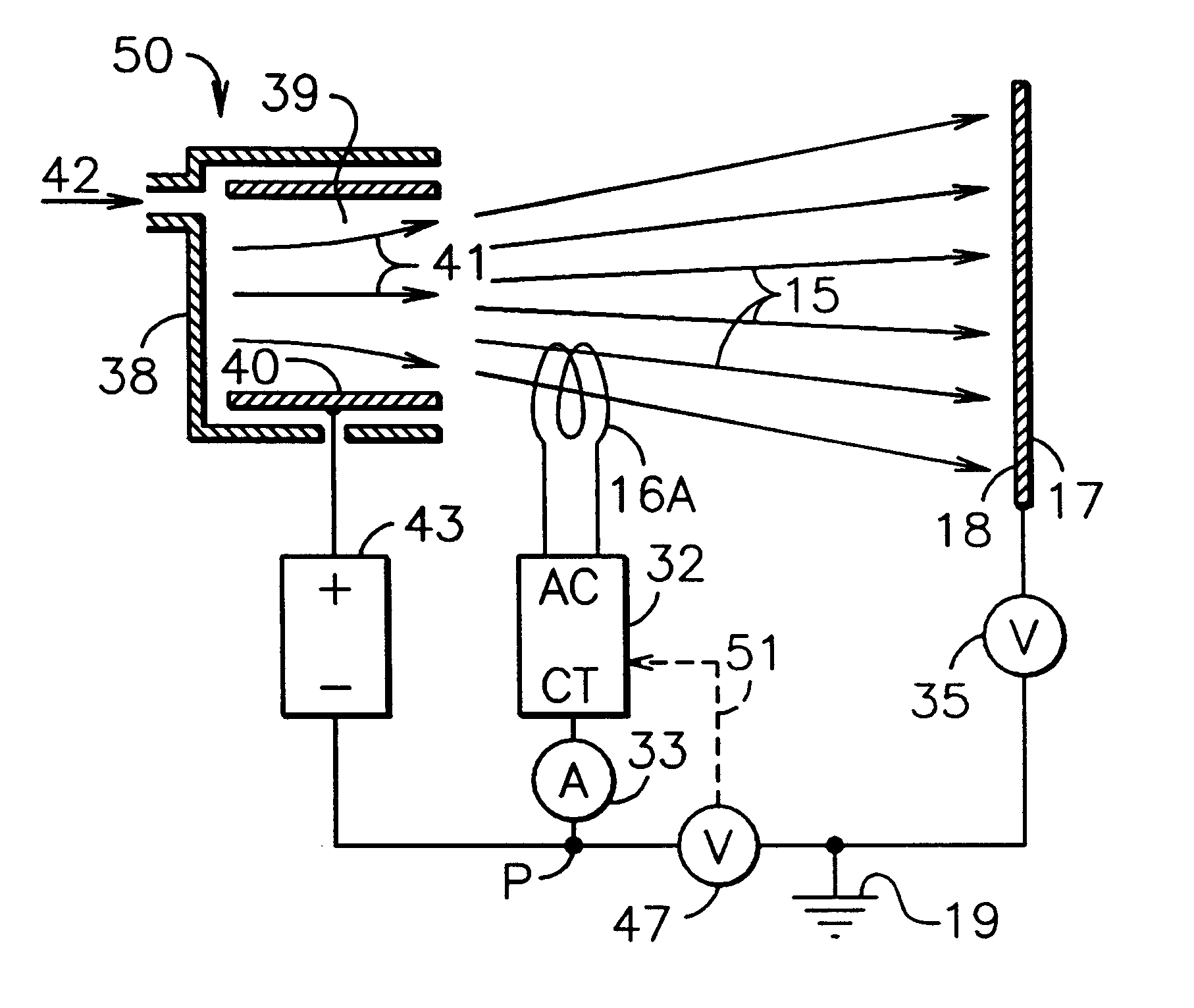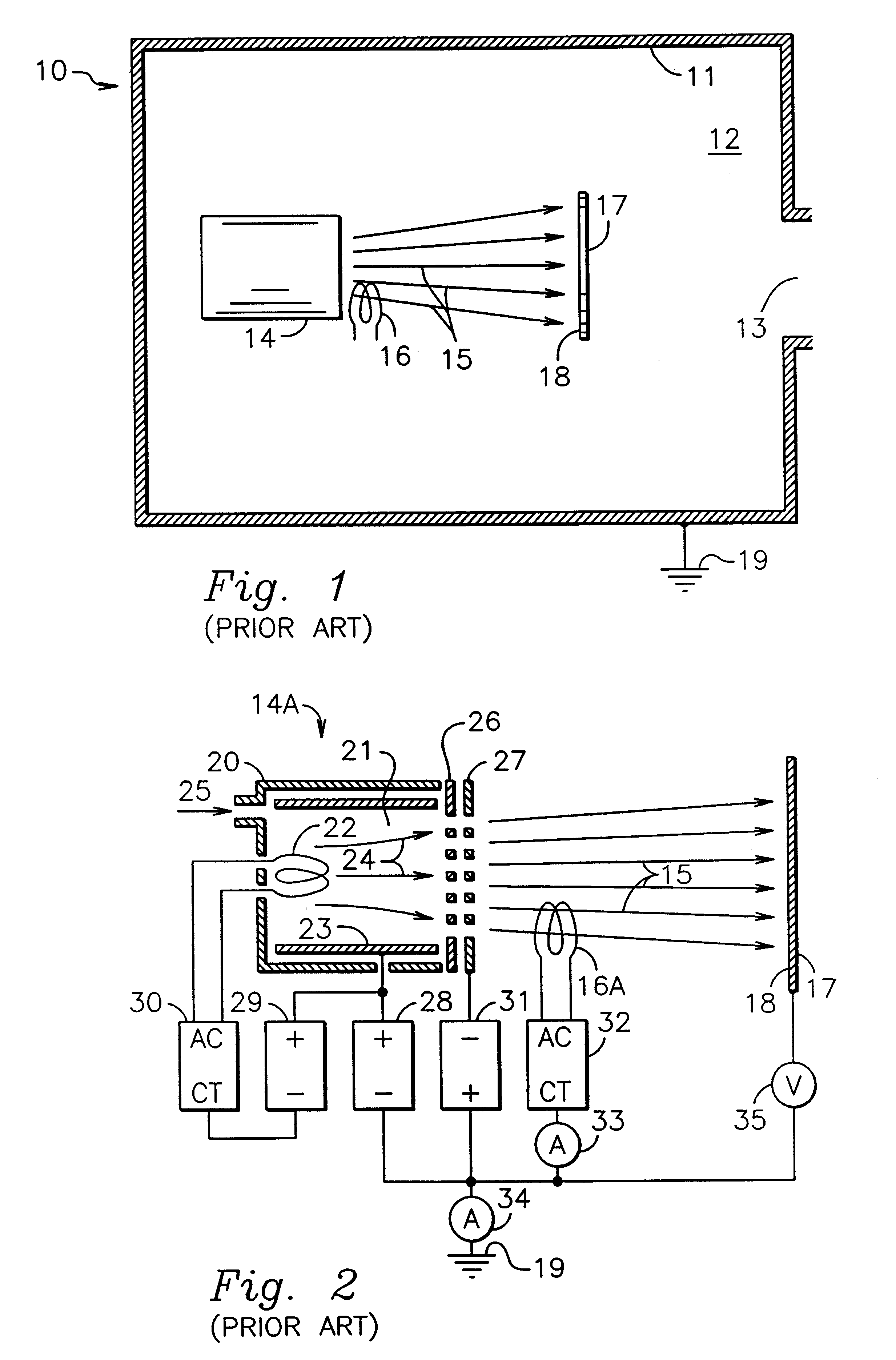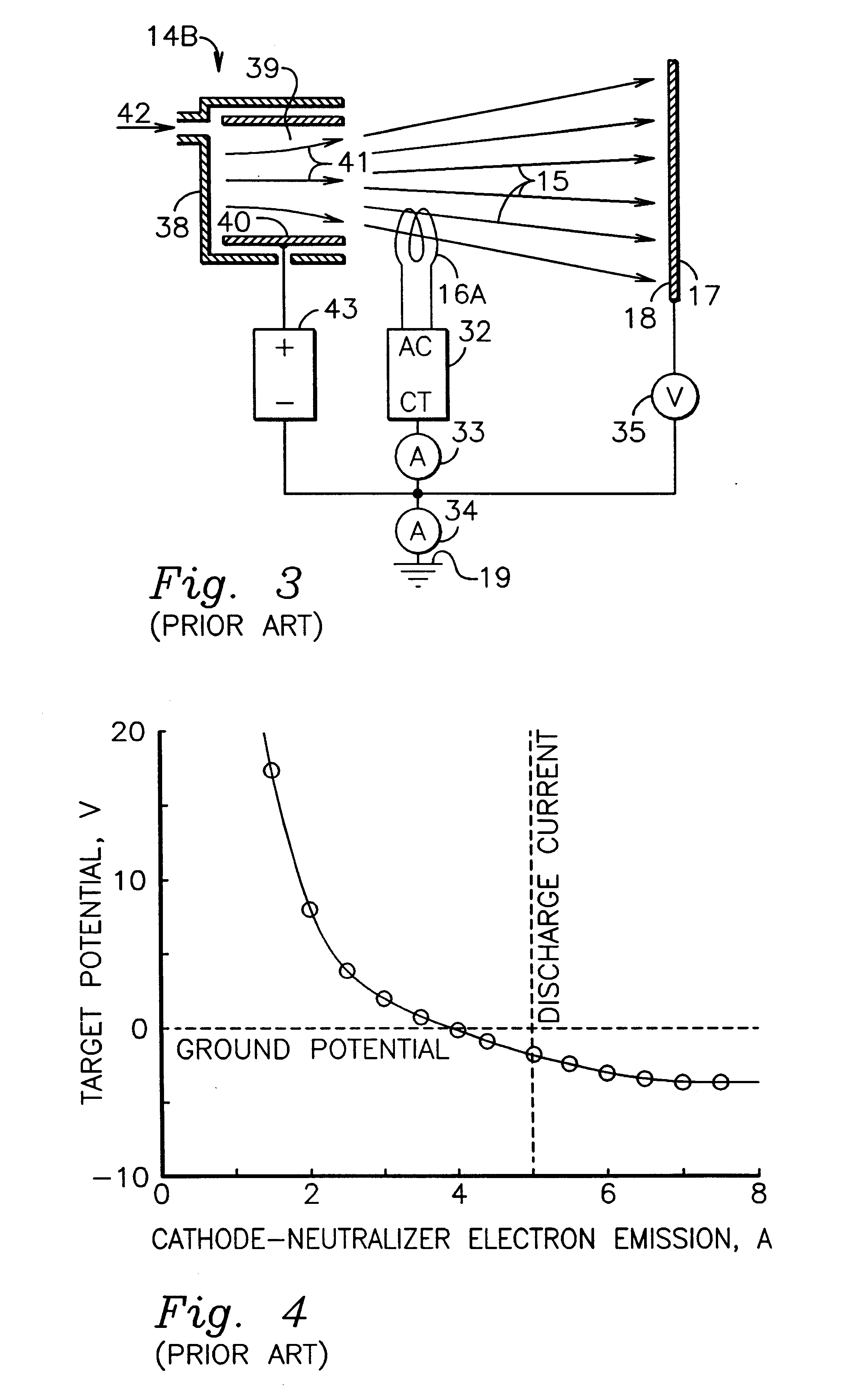Ion-source neutralization with a hot-filament cathode-neutralizer
a technology of neutralizer and hot filament, which is applied in the direction of discharge tube main electrodes, incadescent cooling arrangements, machines/engines, etc., can solve the problems of more heating at the end, more rapid failure of hot filament, and difficulty in obtaining second kind of neutralization, so as to maximize the hot filament life and minimize overheating. , the effect of simple and reliabl
- Summary
- Abstract
- Description
- Claims
- Application Information
AI Technical Summary
Benefits of technology
Problems solved by technology
Method used
Image
Examples
Embodiment Construction
Referring to FIG. 9, there is shown ion-source apparatus 50 that is an embodiment of the present invention wherein the ion source is of the gridless type. As in discussions of prior art, the gridless ion source in FIG. 9 could be of either the end-Hall or the closed-drift types. This apparatus is generally similar to the ion source apparatus 14B in FIG. 3, except that the electron emission is self-regulating in a manner previously only obtained with hollow-cathode cathode-neutralizers.
Operation of the ion source is generally similar to that described for FIG. 3. Gridless ion source 50 has outer enclosure 38 that surrounds volume 39. Within this volume there are anode 40 and magnetic field 41. Electrons emitted by cathode-neutralizer 16A are constrained by the magnetic field and reach the anode only as the result of a variety of collision processes. Some of these collisions are with ionizable gas 42 introduced into volume 39 and generate ions. Some of the ions generated are accelerat...
PUM
 Login to View More
Login to View More Abstract
Description
Claims
Application Information
 Login to View More
Login to View More - R&D
- Intellectual Property
- Life Sciences
- Materials
- Tech Scout
- Unparalleled Data Quality
- Higher Quality Content
- 60% Fewer Hallucinations
Browse by: Latest US Patents, China's latest patents, Technical Efficacy Thesaurus, Application Domain, Technology Topic, Popular Technical Reports.
© 2025 PatSnap. All rights reserved.Legal|Privacy policy|Modern Slavery Act Transparency Statement|Sitemap|About US| Contact US: help@patsnap.com



